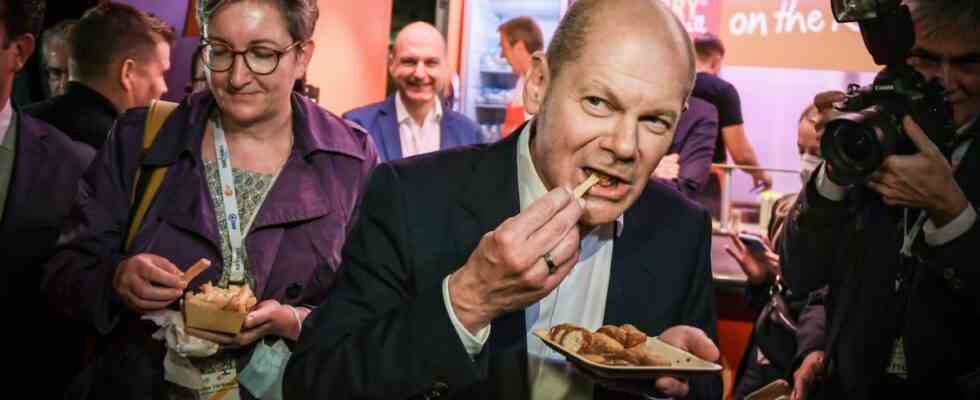When you see the gate in front of the Chancellery, a sentence rings in your head to this day: “I want to get in here.” That’s what Gerhard Schröder shouted when he was young in Bonn. Now the chancellery has long been in Berlin and Schröder is outside of the political consensus and chancellor deals are no longer made out of an architectural icon, but out of a block described as an “oversized washing machine”. At that gate in Berlin, however, “Come in here” should currently be written. The office is looking for an employee in an industry that is severely affected by the shortage of skilled workers.
“Waiter in the service and kitchen area of the chancellor’s office” says the federal website, in other words: a waiter for the chancellor. “You are responsible for the catering of the Federal Chancellor, the Head of the Federal Chancellery and the Ministers of State as well as domestic and foreign guests”. Those who hold the job have to prepare and serve food and drinks and help organize “celebrations, events and conferences”.
The Federal Chancellery presents itself in a modern way: the employee can be male, female and diverse. On average, one earns 3124 euros in the specified salary class in Berlin. The boss and head of state has earned 30,189.81 euros since the most recent diet increase. The salary gap between the person who serves the steak at lunchtime and the person who eats it is likely to be larger in many companies in the private sector.
Does tipping come with it?
Otherwise, service staff tend to earn in a year what the chancellor receives in a month. There are good reasons why things are different here. The job is formally considered a “simple service”, as the ad says. In fact, serving people food is an error-prone act anyway: plates from the left, which cutlery, when to take them away, who to serve first? As a waiter, you have to be able to do a lot more. And “Absolute confidentiality” is also in the job description.
A few questions remain unanswered: The wages in service are also low because tips are often added. How exactly can one imagine this? And: Does it reveal something about the Chancellor’s priorities that he was initially looking for someone to take care of dirty tablecloths and serviettes – “Scholz is looking for experts for dirty laundry” was the resourceful headline of the picture – before he reassigns the kitchen service? And anyway: Predecessor Angela Merkel had already hired a second chef, why does he want even more staff? The office said at the time that the number of events was increasing. More crisis talks, more cooking and waiters in the Chancellery, was the formula that certainly still applies. Under Scholz, however, this could have a more mundane reason: In contrast to Merkel, he uses the official apartment. And as CDU politician Wolfgang Bosbach once revealed, you can only reach the apartment’s kitchen by crossing two meeting rooms. Maybe Scholz just wants to save one or the other course – and still eat several courses.

